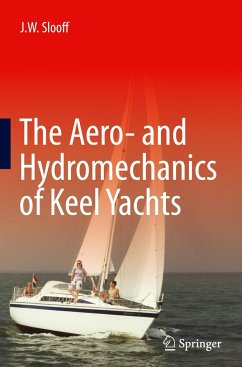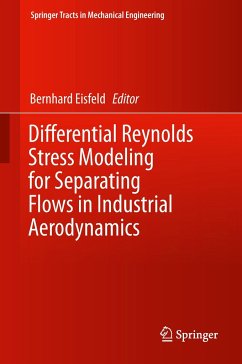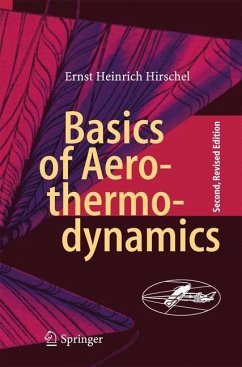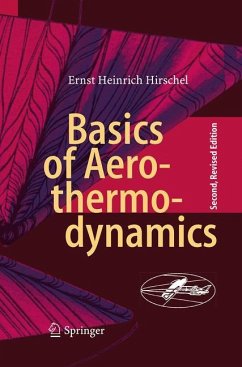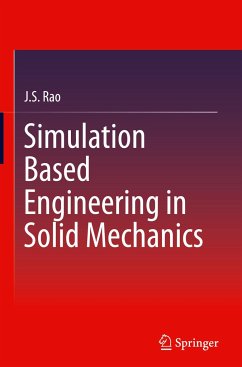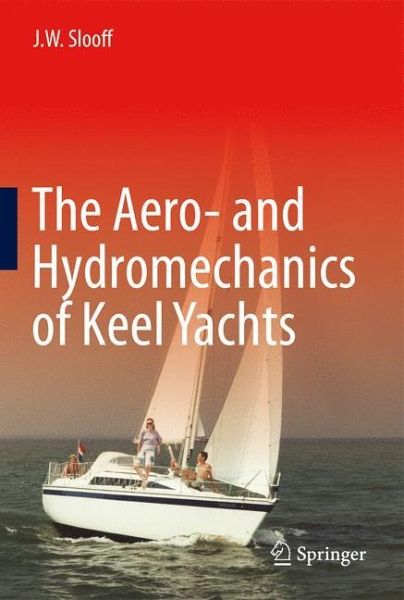
The Aero- and Hydromechanics of Keel Yachts

PAYBACK Punkte
46 °P sammeln!
How and why does sail boat performance depend on the configuration and trim of boat and sails? This book provides the yachtsman with answers in a relatively straightforward account of the physical mechanisms of sailing. It presents an accessible overview of the fluid dynamic aspects of sailing and sailing technology, addressing both aeromechanics and hydromechanics.Readers are provided with the basic principles of physics and general mechanics that will assist their understanding of the fluid mechanics of sailing yachts. Rich appendices cover not only in-depth,mathematical-physical treatments ...
How and why does sail boat performance depend on the configuration and trim of boat and sails? This book provides the yachtsman with answers in a relatively straightforward account of the physical mechanisms of sailing. It presents an accessible overview of the fluid dynamic aspects of sailing and sailing technology, addressing both aeromechanics and hydromechanics.
Readers are provided with the basic principles of physics and general mechanics that will assist their understanding of the fluid mechanics of sailing yachts. Rich appendices cover not only in-depth,mathematical-physical treatments and derivations for those wishing to explore further, but also helpful summaries of basic mathematical notions for those wishing to refresh their knowledge.
This work explores keel yachts, specifically single-masted mono-hulls with 'fore-and-aft', Bermuda-rigged sails. However, much of it is applicable to other types of sailing vessels such as multi-hulls, yachts with multiple masts, windsurf boards and the like.
Yachtsmen, yacht designers and professionals of sailing technology will all find something of interest in this work which provides explanations of the mechanics of sailing in a way that is scientifically justified, whilst remaining appealing to those wishing to use their knowledge on-board a sailing vessel.
For some years I'm teaching a course on "Sailing Yacht Design" in the master class of yacht design. Actually, I've found your book the best one about physics of a sailing yacht I've ever read.
Edward Canepa, assistant professor in Fluid Machinery at the University of Genova (Italy)
...very impressed, no wonder it took so long. It is "everything I ever wanted to know about sailing but was afraid to ask" !
Frank Woodward, former computational fluid dynamicist at the Boeing Company and Analytical Methods Inc., and a cruising yachtsman
Readers are provided with the basic principles of physics and general mechanics that will assist their understanding of the fluid mechanics of sailing yachts. Rich appendices cover not only in-depth,mathematical-physical treatments and derivations for those wishing to explore further, but also helpful summaries of basic mathematical notions for those wishing to refresh their knowledge.
This work explores keel yachts, specifically single-masted mono-hulls with 'fore-and-aft', Bermuda-rigged sails. However, much of it is applicable to other types of sailing vessels such as multi-hulls, yachts with multiple masts, windsurf boards and the like.
Yachtsmen, yacht designers and professionals of sailing technology will all find something of interest in this work which provides explanations of the mechanics of sailing in a way that is scientifically justified, whilst remaining appealing to those wishing to use their knowledge on-board a sailing vessel.
For some years I'm teaching a course on "Sailing Yacht Design" in the master class of yacht design. Actually, I've found your book the best one about physics of a sailing yacht I've ever read.
Edward Canepa, assistant professor in Fluid Machinery at the University of Genova (Italy)
...very impressed, no wonder it took so long. It is "everything I ever wanted to know about sailing but was afraid to ask" !
Frank Woodward, former computational fluid dynamicist at the Boeing Company and Analytical Methods Inc., and a cruising yachtsman




